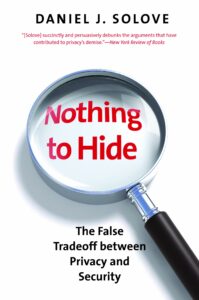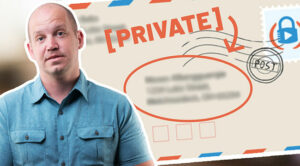If you’ve ever heard (or said) the words “I have nothing to hide!” when talking about social media, your online shopping, or any other kind of data collection, you’re not alone. It’s the most common response, yet it’s also the most dangerous. Here’s why this one sentence is the biggest threat to our privacy as a society.
Be sure to subscribe to the All Things Secured YouTube channel!
STOP sticking your head in the sand.
If you think online privacy doesn’t matter because you have nothing to hide, you might need to take a long, hard look at what this really means for you and the next generation.
As Edward Snowden once said in an interview:
Arguing that you don’t care about the right to privacy because you have nothing to hide is no different than saying you don’t care about free speech because you have nothing to say.
Edward Snowden
Take a moment to Google your own name and hometown to see just how much of your personal information is available for pretty much anybody to search or purchase. Unless you take steps to erase this personal information off the internet, it will remain publicly visible for the world to see.
But it’s more than simply an illogical argument. It’s a dangerous one.

Security and Privacy | It’s Not a Zero-Sum Game
Daniel J. Solove, author of the book Nothing to Hide | The False Tradeoff Between Privacy and Security, argues that it is entirely possible to enact real security without giving up too much privacy.
But we live in a world where privacy is not on by default, so it is up to each of us as individuals to make this a priority and to stand firm in our rights to privacy despite a world where it is quickly eroding.
The problem, as explained in the video above, is that privacy is a commodity that, once it has been given up, can never be gained back.
In other words, once that photo gets published online, it can never be unpublished. There will always be an archive somewhere. Once a piece of information is known about you, it can never be “un-known”.
For this reason, we should be very careful about what privacy rights we relinquish in the name of security.

